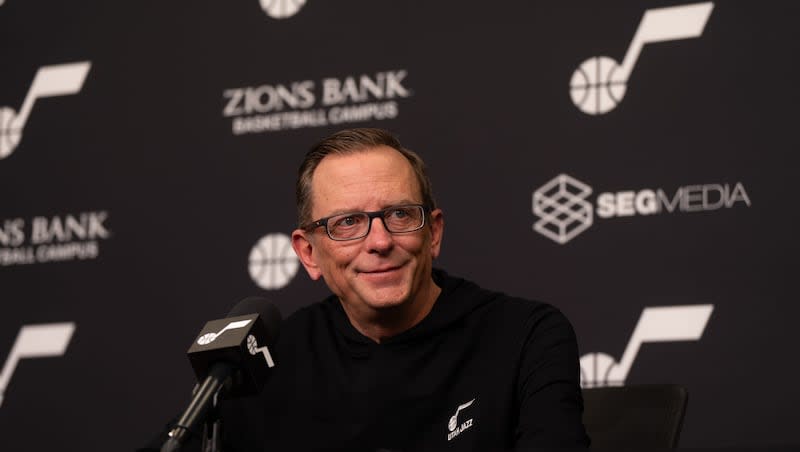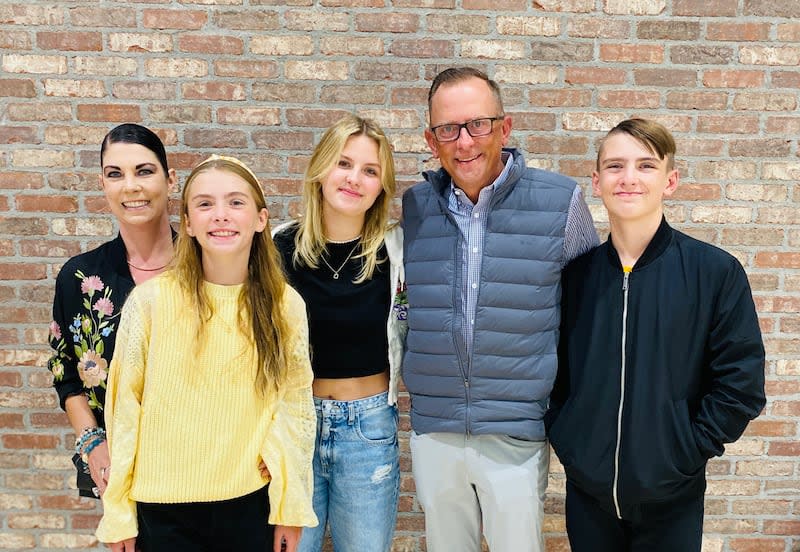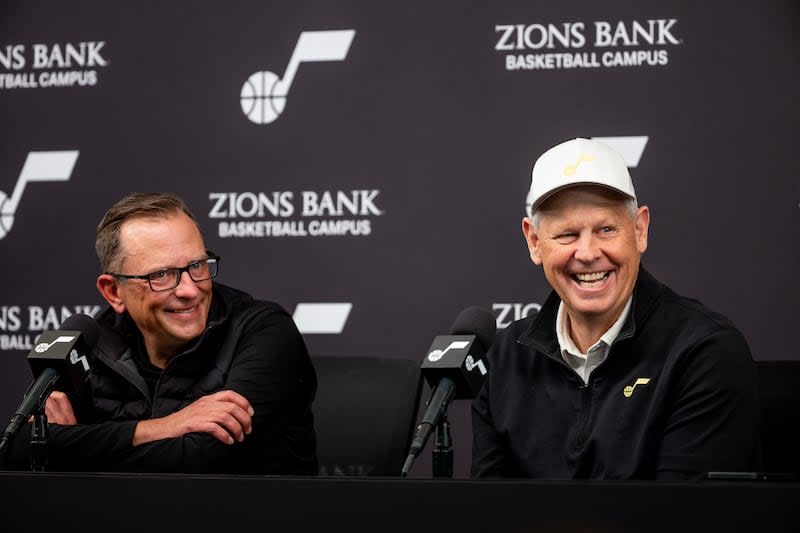Utah Jazz GM Justin Zanik to undergo kidney transplant

Last summer, Utah Jazz general manager Justin Zanik was busy and tired.
On top of a hectic offseason schedule — the NBA draft, free agency, Summer League and preparations for the upcoming season — he’d just attended the FIFA Women’s World Cup, hosted in Australia and New Zealand. He’d come back for a week before heading back to Australia again and while at home, his wife Gina told him that he seemed more fatigued than usual.
“We also want to recognize and thank the Living Donor Program for the extraordinary life-saving work that they do … We are humbled and grateful to all of the donors that signed up to donate on Justin’s behalf. Justin looks forward to getting back to work in the coming weeks.”
Zanik family statement
Of course he was tired. He’s an NBA general manager who has three teenage kids and was making multiple trips around the world with short turnaround times. But Gina was persistent, urging him to get a physical, something he’d ignored doing for years.
In Zanik’s mind, he was fine. He had good sleep habits, he ate well, is one of the lucky few who hasn’t contracted COVID-19 and was in great shape. Sure, he was a little tired, but nothing that a Red Bull couldn’t cure.
Even so, he agreed to see his doctor and get a physical a few days before Jazz training camp started in Hawaii. Nearly everything checked out as normal — heart, lungs, cholesterol, blood pressure, skin, etc. — but there was a problem. His kidney function was around 14% — Stage V kidney failure.
A matter of when, not if
Zanik’s father has polycystic kidney disease, or PKD, a hereditary disorder in which cysts develop within the kidney, causing loss of function over time. His father had a kidney transplant more than two decades ago and is still alive and living a normal life.
In the back of Zanik’s mind, he knew that there was a possibility that he could be at risk for having the genetic mutation that would cause PKD, but he didn’t want to think about it. He didn’t want to deal with it.
But after his doctor returned the news that he was in kidney failure, and also living with PKD, he was forced to deal with it. He wondered if he would die, if he would have to begin dialysis, if he would have to quit his job. He wondered if he’d done anything wrong. Could a healthier lifestyle have prevented this?
His doctors assured him that any lifestyle changes could have only extended the life of his kidney by a small amount. This was a matter of when, not if.
Over the last few months, Zanik’s kidney function and activity levels have been monitored closely. If they were to dip significantly, he would need dialysis. Fortunately, he’s remained stable and hasn’t had to go down that road. But that doesn’t mean nothing needs to be done. Without a doubt, Zanik needs a transplant.
The waitlist for a deceased donor transplant is years long. Status, power and money mean nothing to the donor list. The only other option is finding a living donor.
A selfless act
Finding a living donor is not an easy process. If you have a close friend or family member that has a healthy kidney and also matches your blood type, they still must be comfortable making the decision to donate their kidney.
Even then, it requires intense screening, and medical and psychosocial evaluation. If you don’t have someone close to you that matches all the necessary criteria, you can be put in a living donor registry through the National Kidney Registry and Living Donor Program. But that requires having someone still willing to donate a kidney on your behalf and then being able to find someone else in the registry that is a match for you.

Zanik is not used to asking for help. Rather, he is more familiar with being the one in his life that fixes the problems of others. But now he had to ask not just for help, but for someone to help save his life.
Through family and friends, Zanik had about 20 people agree to start initial screening. Then, one of them turned out to be a perfect candidate for donation and agreed to donate on Zanik’s behalf so he could get on a living donor registry.
Jeff Hart is the husband of Gina Zanik’s best friend. On April 5, he will have surgery to remove one of his kidneys, which will go to a recipient that has been optimally matched with him. On Tuesday, Zanik will receive a transplant from someone else who registered to donate their kidney.
In this case, there are two people who have agreed to donate an organ to a person that they don’t know, that they have never met and likely never will, in order to potentially save a life. One of those lives is Zanik’s.
What’s next?
“As we take the next step in this journey, we would like to extend our deepest gratitude to University of Utah Health and their incredible medical staff,” the Zanik family said in a statement. “We also want to recognize and thank the Living Donor Program for the extraordinary life-saving work that they do … We are humbled and grateful to all of the donors that signed up to donate on Justin’s behalf. Justin looks forward to getting back to work in the coming weeks.”
Zanik has no intention of stepping away from his role as general manager for the Utah Jazz for longer than necessary. He’ll be out of the hospital in a matter of days and recovery should only take a few weeks.
He’ll have to be on anti-rejection medication for the rest of his life, which can suppress his immune system and will require caution and care. But with an optimized match for his transplant, there’s every reason to expect that Zanik will live a long and healthy life.
Zanik expects that after a brief absence for recovery, he’ll be back to help run the upcoming 2024 NBA draft and jump back into life as usual — but with a renewed sense of gratitude and appreciation for the life that he has, and for the selflessness of others.


